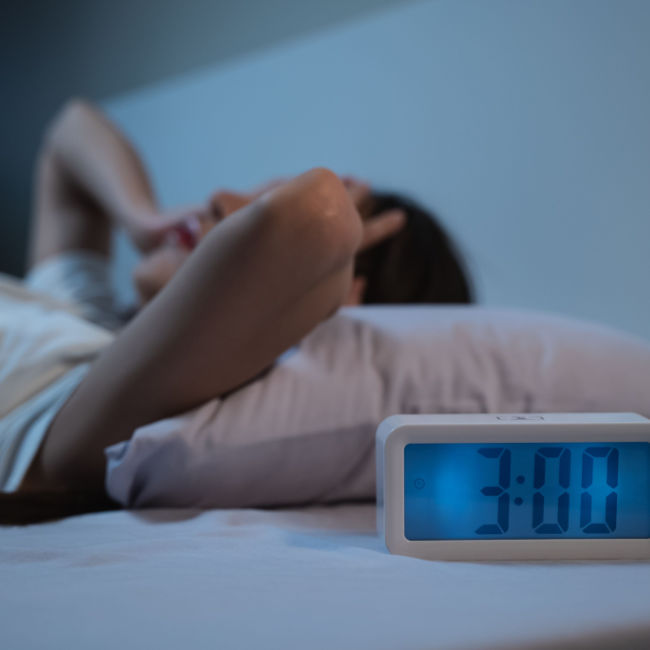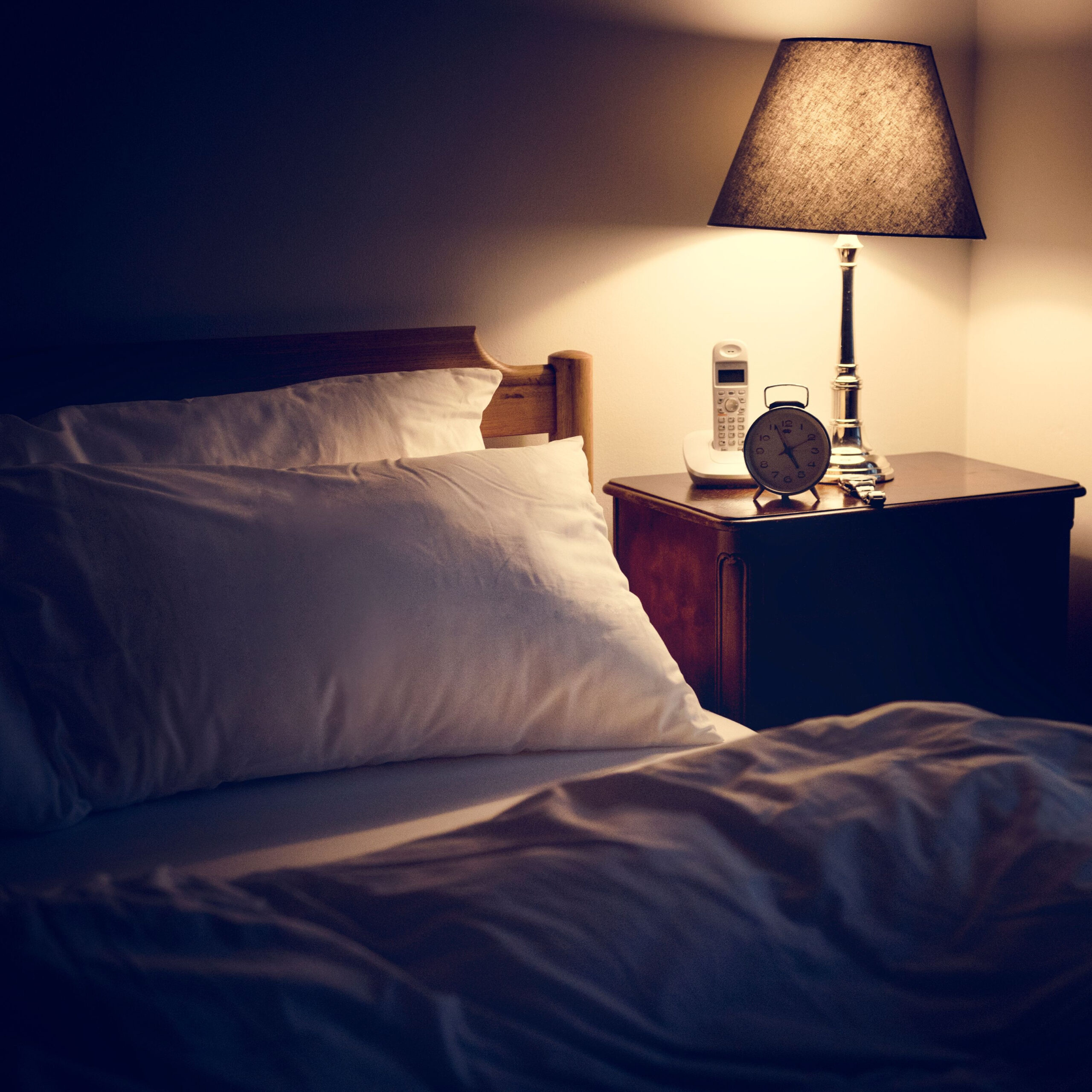An inability to sleep can be one of the most frustrating things to experience in life. After all, sleep isn’t just a luxury—it’s crucial to your overall health. Failing to get enough of it could result in a range of issues, including a higher risk of heart disease. So insomnia is a serious battle—and one that can oftentimes feel impossible to win. From relaxing exercises to supplements, there are so many methods and remedies to try, and, unfortunately, many of them can be straight up ineffective. In fact, there are a few supplements in particular that health experts say you’re better off leaving on the shelf because they’re unlikely to garner good results.
To discover a few potentially ineffective sleep supplements on the market, we checked in with dietitian Trista Best and nutritionist Lisa Richards, creator of The Candida Diet. They told us that chamomile supplements and melatonin gummies are two you should be wary of. Read on to learn more about why these may be poor choices.


1. Chamomile Supplements
Chamomile is well-known as a natural remedy that can help promote a sense of calm and a restful sleep. However, when compared to chamomile tea and other forms, Richards tells us that chamomile supplements may not be very effective due to a lack of potency.
"Chamomile supplements might not always be effective as a sleep aid because the potency and quality of chamomile extracts can vary between products, leading to inconsistent results," she says.
It's also important to note that, as Richards tells us, "Individual responses to chamomile may differ due to factors such as metabolism, genetics, and overall health. Unlike chamomile tea, which delivers a warm and soothing experience, the concentrated form in supplements may not have the same calming effect."

It can also be difficult to determine the proper dosage for this supplement, given the fact that "the specific compounds responsible for chamomile's potential sleep-inducing properties are not well-defined."
There's also the fact that, like most natural remedies and herbal supplements out there, "chamomile's effects can be subtle and might not be as potent as other clinically-proven sleep aids."
"Overall, while some individuals may find chamomile supplements beneficial for sleep, others may not experience the same results, highlighting the importance of personalized approaches to sleep management and seeking advice from healthcare professionals for more reliable solutions," Richards concludes.

2. Melatonin Gummies
Melatonin is perhaps the most popular of all sleep supplements. And in many cases, it can be effective (although it does come with a few downsides). However, there's one form of melatonin that Best says likely won't do the trick: gummies.
"The dosages of melatonin gummies can vary significantly between different brands and products," she explains. "Some gummies may contain higher or lower doses than what is actually needed to improve sleep, making it challenging to achieve a precise and effective dosage."
In addition to unreliable dosages, melatonin gummies can also take a long time to set in. "Melatonin gummies often take longer to take effect compared to other forms of melatonin, like sublingual tablets or liquid drops. This delayed onset may not align with the desired timing of sleep, leading to suboptimal results," Best goes on.
There are also a few other factors that could affect your body's ability to reap the benefits of melatonin in these gummies. "The effectiveness of melatonin gummies can be influenced by gastrointestinal factors," she tells us. "The gummy form requires digestion, which can affect the absorption and bioavailability of melatonin, potentially reducing its effectiveness."
In general, gummies can be some of the least effective forms of supplements, so it's best to choose other options.

The bottom line
There are many steps you can take in order to treat insomnia and promote a more restful sleep. Coming up with a good, relaxing bedtime routine and following healthy sleep habits is always a good place to start. Supplements can certainly be helpful, and ultimately, their efficacy is determined by a number of factors, including your own personal biological makeup. But if you're looking to trim the fat from the wide range of choices on the market, you may want to avoid these potentially ineffective options.


























